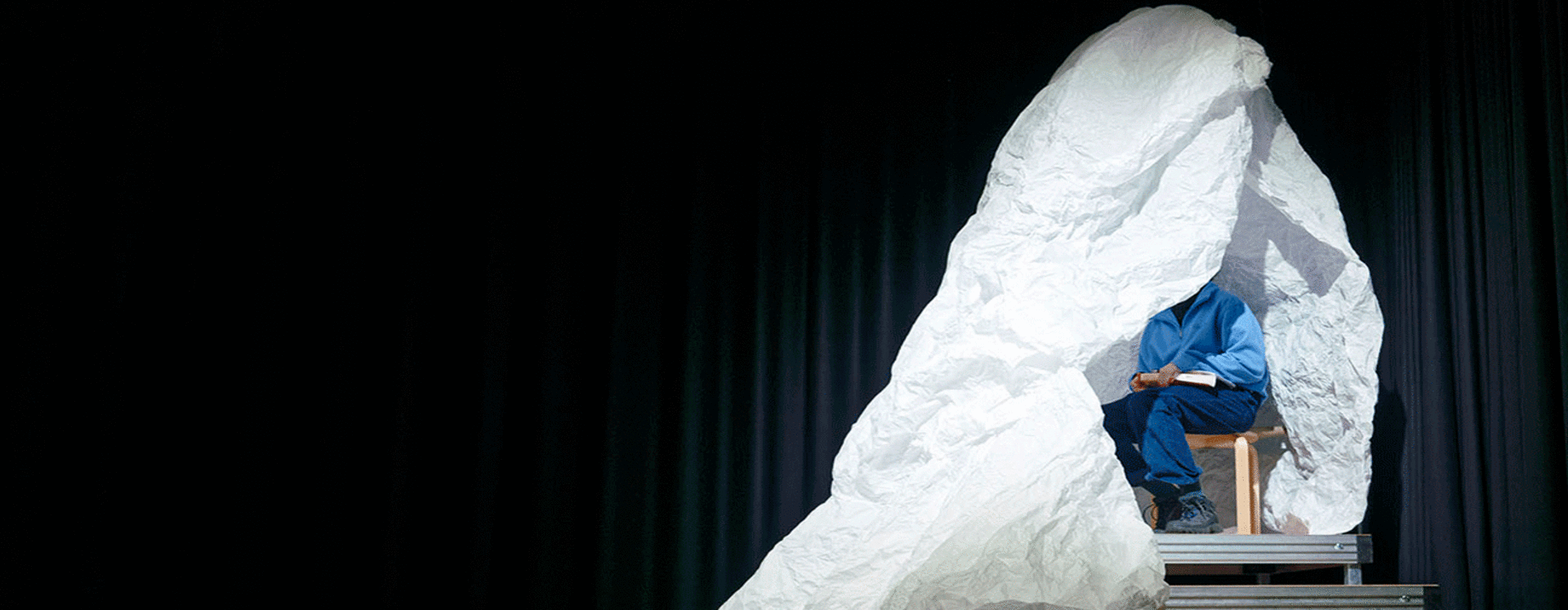Social justice, Inclusion
All that you touch
You Change
All that you Change
Changes you.
The only lasting truth
Is Change.
Octavia Butler

Radio Silence. Photo: Theron Schmidt.
The ATD Lectorate hopes to contribute to a more inclusive art sector and a socially just world. This theme marks our concern with how the performing arts and creative producing relate to the aims of social justice movements: to dismantle systems of oppression and achieve liberation, justice and equity for all. The lectorate in this area might explore inequalities, inclusion and exclusion as they relate to race, ethnicity, class, sex, gender, sexuality, disability, neurodiversity, religion, age, and species. We seek to examine how forms of oppression are entangled with each other, informed by Audre Lorde: “There is no such thing as a single-issue struggle, because we do not lead single-issue lives.”
Research under this theme investigates the dynamics of power relations within theatre and dance practices and pedagogies, including within our own Academy. It asks who can access the arts and in what ways; and demands a self-reflexive attention to our own roles as artists, teachers and researchers in upholding oppressive systems. Researchers may explore a variety of techniques - of listening, conversation, attention, participation, healing, hospitality, gathering and encounter - that aim towards greater degrees of openness, accessibility, inclusion and mutual transformation.
At the ATD Lectorate, we are particularly interested in how social justice intersects with ways of knowing and questions of care: how racism, colonialism, patriarchy and other systems of oppression operate in relation to our field of knowledge; how colonial methods and values are sustained in and by research practice itself; and how performance might operate as a mode of unlearning, exploring care and vulnerability as alternatives to the paradigm of mastery in research.
– How can the arts respond to systemic violence & oppression?
– How do systems of oppression - colonialism, capitalism, racism - operate in the (performing) body?
– How can theatre and dance enter into processes of decolonization?
– How does colonialism operate in relation to the knowledge we produce in theatre & dance education and research?
– How can a radically inclusive theatre and dance practice be performed?
– What techniques, methods and skills do artists, teachers and creative producers use to create an inclusive practice?
– How can different groups participate in artistic research on their own terms?
– How do the arts relate to activism and the movement toward a socially just world?
– How can the arts work to change the unequal distribution of resources, suffering and joy?
– How does white supremacy operate in the fields of theatre and dance?
Work in this theme might involve a wide range of practices and topics, including but not limited to:
- Anti-oppressive approaches to performance and facilitation: anti-racist, decolonial, queer, intersectional feminist, anti-ableist
- Inclusion in theatre and dance education
- Questions of consent, harm, trust and risk in performance practice
- Approaches to undoing or unlearning structural inequality in the arts
- Intergenerational performance; empowering young people; ageism
- Practices of healing, resilience and survival in the context of systemic oppression and violence
- Mental health in arts and social justice; responding to the psychological and somatic harms inflicted through racism, homophobia, transphobia, ableism etc.
- Alternatives to paradigms of mastery in research: not-knowing, care, vulnerability.
- Relationship between the arts and democracy
- Social safety in the arts: creating safe(r) and/or brave(r) spaces
- Trauma-informed practices in the arts
- Decentring Eurocentrism in theatre and dance histories and pedagogy; foregrounding insights of Black and Global Majority art, scholarship and knowledge-systems
- How oppression is performed in art, education and everyday life: epistemic erasure; appropriation; microaggressions etc.
